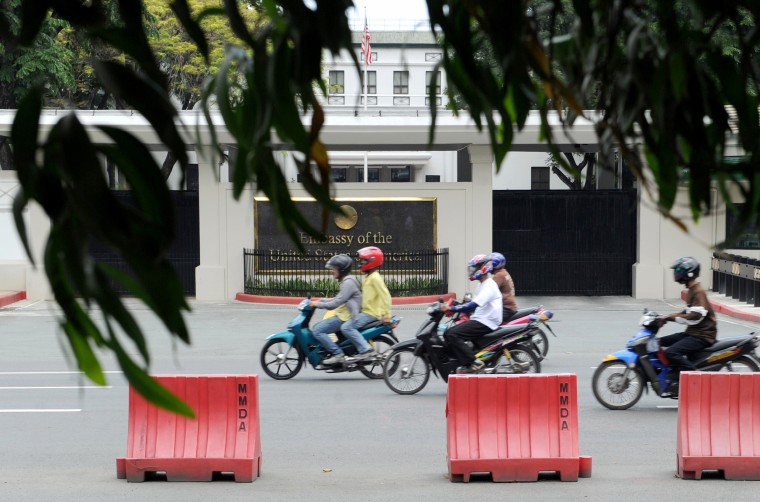Nationals of the Philippines are no longer eligible for U.S. visas for temporary seasonal or agricultural work, the Department of Homeland Security (DHS) announced last Friday, citing concerns about high visa overstay rates and the possibility of human trafficking.
In a notice published to the Federal Register on Jan. 18, DHS detailed the removal of the Philippines from the list of countries eligible for the H-2A visa — which allows U.S. employers to hire agricultural workers with some restrictions — and the H-2B visa — which is often used for seasonal businesses like landscaping and crabbing.
The department said in the notice that it estimated about 40 percent of H-2B visa holders from the Philippines did not leave the country after their authorized period of stay. The U.S. Embassy in Manila also issued 40 percent of all visas for family members of human trafficking survivors, the department said, with 60 percent of those trafficked having held an H-2B visa.
“DHS and DOS are concerned about the high volume of trafficking victims from the Philippines who were originally issued H-2B visas and the potential that continued H-2B visa issuance may encourage or serve as an avenue for future human trafficking from the Philippines,” the notice read.
The notice does not affect those who currently hold valid visas, it said, though they would be affected if they applied for an extension. In fiscal year 2017, 64 agricultural visas and 767 seasonal work visas were issued in the Philippines, according to State Department data.
United States Citizenship and Immigration Services (USCIS), the federal agency that oversees the immigration system, retains the ability to approve applications from Philippine nationals on a case-be-case basis at their discretion, the notice said.
“This annual notice makes clear that in order for individuals from a particular country to remain eligible for H-2A and H-2B programs, both the country and its beneficiaries working in the U.S. must demonstrate a continued commitment to upholding the integrity of our immigration system, fidelity to our laws, and fundamental respect for human rights and public safety," USCIS spokesperson Michael Bars said in a statement.
In a statement dated Jan. 22, the Philippine Department of Foreign Affairs noted that the U.S. was within its rights to deny the visas and reminded Filipinos to follow immigration rules.
"Nonetheless, the Philippines is open to the possibility of working with the United States in addressing these issues, as it has previously done so with similar concerns involving the Filipino Community there," the statement read.
A civil rights nonprofit based in Los Angeles that has represented survivors of human trafficking from the Philippines said the decision was "short-sighted and not the way to mitigate human trafficking."
"Filipinos do suffer from human trafficking as a result of abused H-2A and H-2B visas," Laboni Hoq, litigation director at Asian Americans Advancing Justice — Los Angeles, said in a statement. "The government needs to provide greater protections for H-2A and H-2B visa holders, not cut off access to these visas entirely."
Ethiopia was also removed from eligibility for both visas. The Dominican Republic was removed from the list of countries eligible for the seasonal work visa.
Samoa, which lost eligibility last year after Immigration and Customs Enforcement found that the country was "at risk of non-compliance" in accepting its nationals ordered removed from the U.S., regained visa eligibility. Mozambique and Paraguay were also added to the lists of eligible countries.
In total, nationals from 84 countries are eligible for the agricultural visa and 81 countries are eligible for the seasonal work visa, according to the Federal Register notice. The list expires annually and must be re-issued.
Congress sets an annual limit of 66,000 seasonal work visas, which are divided evenly between spring and fall. The government received nearly 100,000 requests for spring visas this year. H-2B visa holders may stay in the U.S. for up to three years, depending on the nature of their work for their employer.
There is no legal limit to the number of H-2A visas issued per year, according to CNBC, and more than 200,000 certified temporary agriculture jobs existed in 2017.
Follow NBC Asian America on Facebook, Twitter, Instagram and Tumblr.


